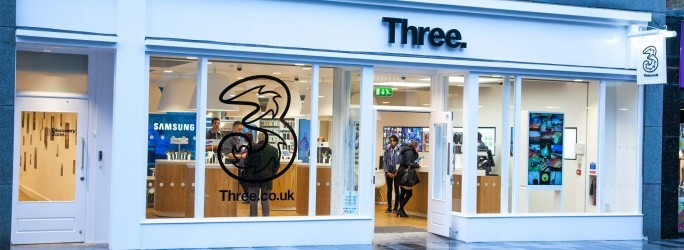Hutchison: Merged Three-O2 would freeze prices and invest £5bn

CK Hutchison defends proposed takeover, saying its promises to retail and wholesale customers will maintain competition and allow it to compete with BT and Vodafone
Three’s parent company has promised to freeze prices for five years and invest £5bn in network infrastructure if its £10.25 billion takeover of O2 is approved by competition authorities, including the European Commission (EC).
Earlier this week, Ofcom CEO Sharon White said the deal would be bad for a UK mobile market that has benefited from intense competition, innovation and low prices, especially since Three, the smallest player, has had a tradition of disrupting the market in order to compete with larger rivals.
There are also suggestions that the European Commission (EC) is becoming less tolerant of market consolidation amid concerns of rising prices in markets where the number of operators has decreased.
Similar mergers have been given European approval in recent times, most notably in Ireland and Austria, but another deal between TeliaSonera and Telenor in Denmark was rejected after remedies could not be agreed upon.
In all cases, the proposed mergers reduced the number of operators from four to three and White said that since the 2013 merger between Three and Orange in Austria, mobile prices had risen significantly.
However, in an open letter, Canning Fok, co-managing director of CK Hutchison and chairman of Three, has outlined how the merger will benefit the UK market and maintain competition, while criticising White for her comments.
 “Readers in Britain must have been bemused by the blizzard of commentary and speculation earlier this week around telecoms competition in the UK,” said Fok. “We might be forgiven for wondering why Sharon White … felt the pressing need to go public with her conclusions about the effects of CK Hutchison’s proposed acquisition of O2 without having asked for or heard our views in response to her concerns.”
“Readers in Britain must have been bemused by the blizzard of commentary and speculation earlier this week around telecoms competition in the UK,” said Fok. “We might be forgiven for wondering why Sharon White … felt the pressing need to go public with her conclusions about the effects of CK Hutchison’s proposed acquisition of O2 without having asked for or heard our views in response to her concerns.”
He said: “Let me make one thing clear: the combination of Three (the smallest operator in the market) with O2 makes us able to stand up to the new Leviathan BT (in the blunt words of Dido Harding, chief executive of TalkTalk, earlier this week), not to mention to the old top-of-the-heap predator Vodafone, and is the only way we can guarantee that five years from now customers will still be getting more and paying less for mobile services.”
Fok said every cost efficiency created by the merger would be passed onto customers and the cost of a call, text or megabyte of data would not increase for a five year period after the merger. He added that the pledge to invest £5 billion to improve service was 20 percent more than what would have been spent by the companies on their own.
There was also a third promise outlined by Fok –a commitment to offer wholesale customers the same quality spectrum that Three uses for its own network.
“This is unprecedented in the UK telecom wholesale market,” he continued. “It eliminates the tricks some wholesalers use to disadvantage their wholesale customers and thus make it harder for them in turn to make competitive offerings to their own customers. This approach will deliver real competition, not just slogans.
“In short, over the next 5 years Three+O2’s customers will be getting more and paying less than they do today for mobile services and the wholesale market will also be better off. Let me emphasise: This is not an aspiration. It is a guarantee.
“Over the coming weeks the promises I have laid out will be an important part of the case Three will put to Europe’s competition authorities, who have had the wisdom not to rush to judgement until, as the law requires, they have heard our response to their concerns.”
BT’s £12.5 billion takeover of EE was completed last week following clearance from the CMA. Ofcom had no significant objections to that particular merger.